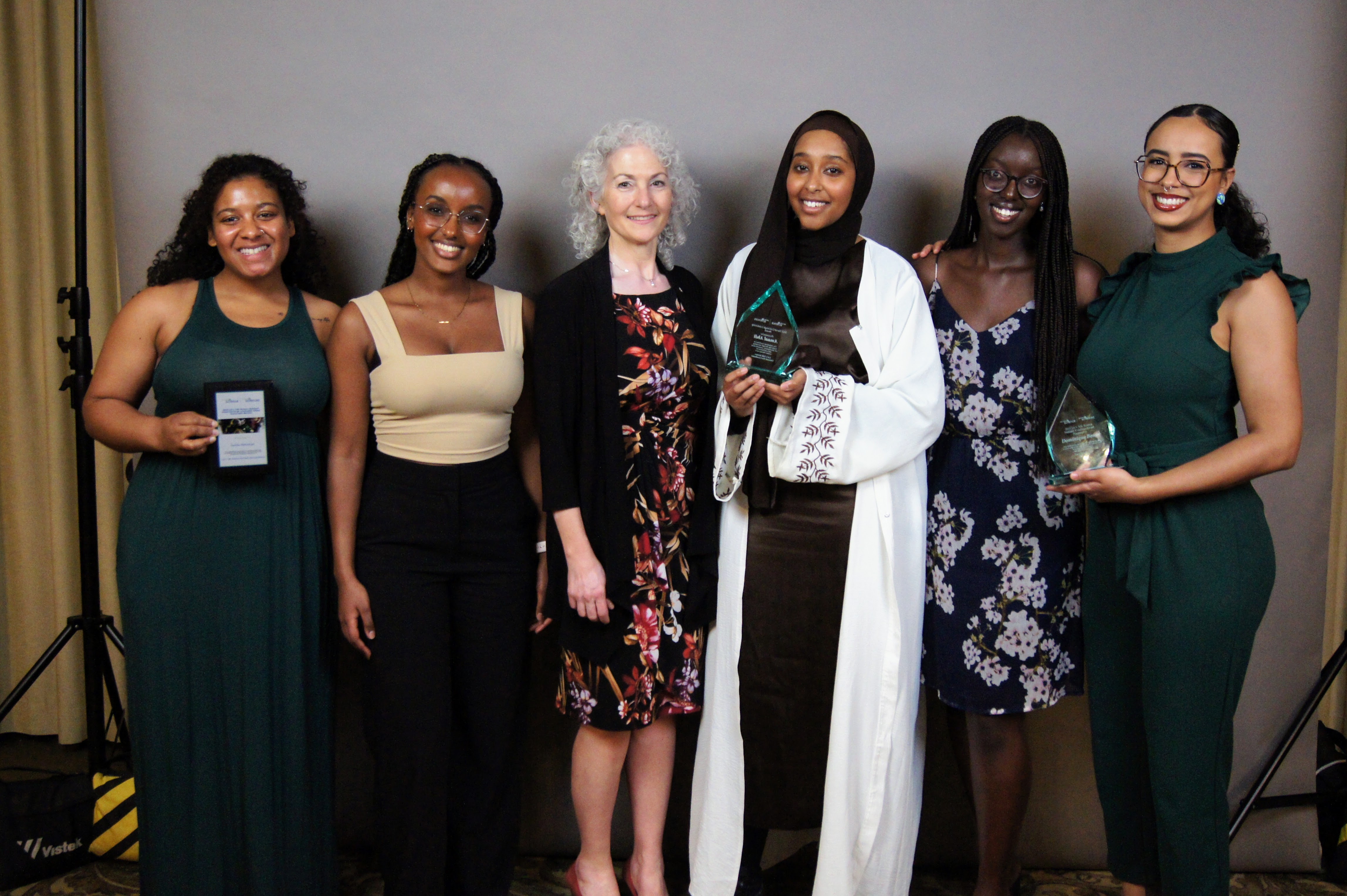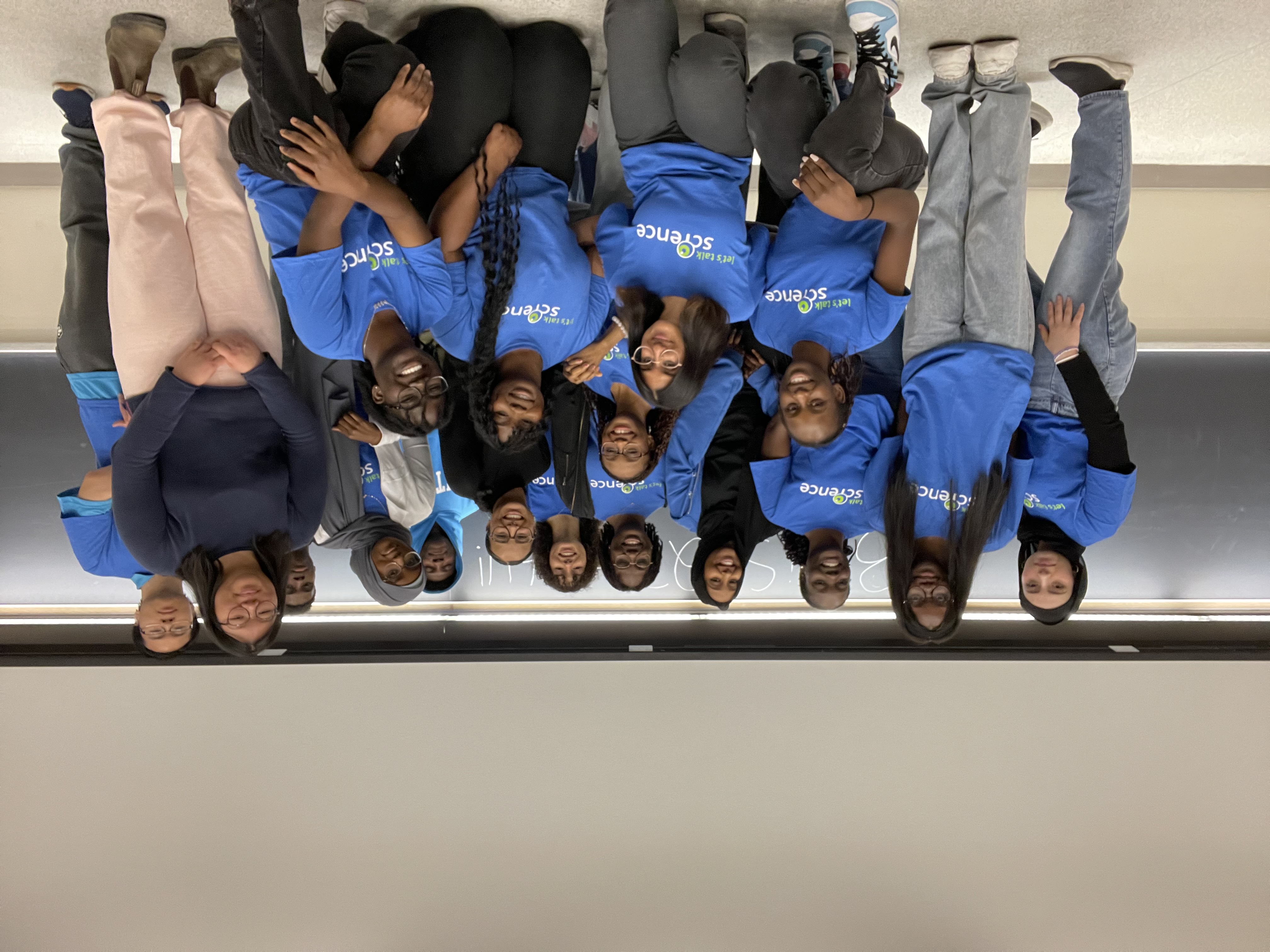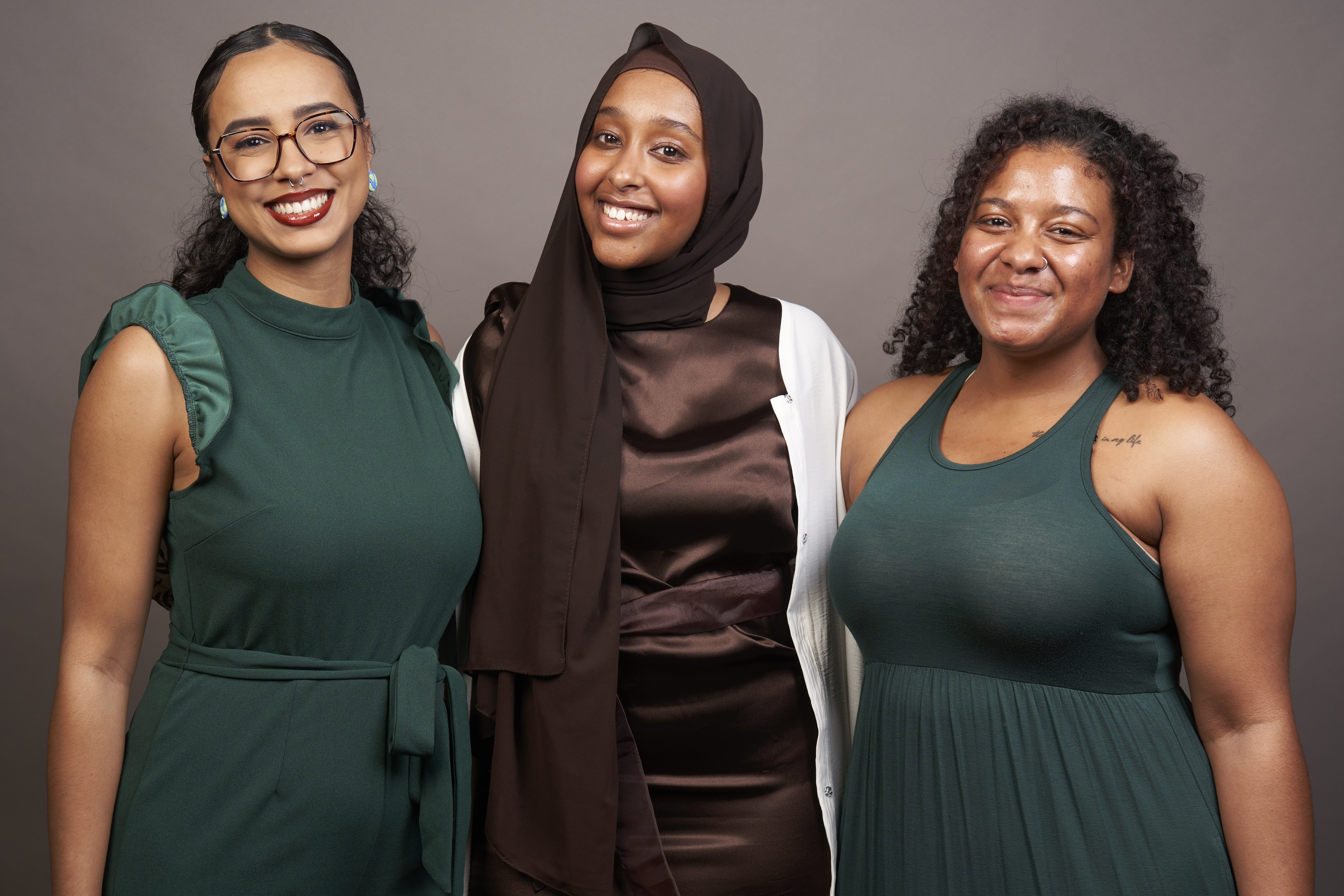Empowering Black Youth in STEM: Amaal Abdi's Let’s Talk Science Initiatives
When Amaal Abdi started volunteering with Let’s Talk Science over five years ago, she immediately fell in love. Volunteering allowed her to connect with her peers, engage with STEM outside her own classroom, and, most importantly, work with and inspire kids with science. “Seeing the kids taking their learning one step further and making real-world connections was so fulfilling to me,” says Abdi. “It's almost an addictive feeling.” Since starting to volunteer at the Let’s Talk Science Outreach Site at the University of Ottawa (uOttawa) and Carleton University (CarletonU), Abdi has doubled, tripled, and quadrupled her commitment to Let’s Talk Science. A year after joining, she became a member of the coordinating team, overseeing all of its volunteers. In 2020, she founded the Black Youth in STEM program, and in 2022, she helped co-found the Let’s Talk Science’s Black Volunteer Collective. In 2023, she received the David Colcleugh Leadership Award for Let’s Talk Science Outreach Site Coordinators in recognition of her achievements and commitment to the organization. Her goal has been to make sure that everyone, no matter their background, has access to STEM programming and role models.
Abdi started volunteering during her second year of studies at uOttawa while pursuing a Bachelor of Science in Translational and Molecular Medicine (TMM). However, she wasn't always sure STEM was where she wanted to go. “I had no idea what I wanted to do in high school. I was one of those people who just literally took everything. All the sciences courses that I could because I wanted to keep my options open,” says Abdi. “I was unsure— being a second-generation immigrant, my parents couldn't really relate, and I found myself torn over what I wanted to do.” While figuring out her options, she found that she immensely enjoyed her science courses, which, paired with familial motivations, led her to pursue STEM post-secondary. “My grandfather at the time had Alzheimer's, and that was what got me curious about diseases,” she says. “Alzheimer's is a unique disease in the sense that we've had research on it for so long, but we still don't fully understand the disease mechanism, and we don't have any good treatment options.” Her narrowed focus on disease and disease processes helped lead Abdi to the Translational and Molecular Medicine program. TMM is a small, research-based program at uOttawa that integrates theoretical and practical courses, providing students with the skill sets required to perform cutting-edge biomedical research.
Volunteering for Let’s Talk Science gave Abdi the opportunity to get out of the classroom and enabled her to bring her passion for science to youth across Ottawa. “Hands down, my favourite part of volunteering is working with the kids,” says Abdi. “They are so much smarter than you could ever imagine, and I've never had a negative experience. I always have kids coming up to me during visits, telling me how much fun they are having and asking when we are coming back. It’s amazing.” While Abdi loves simply interacting and learning from the kids she volunteers with, she also finds her ability to act as a role model to be incredibly powerful. “I don't think it's fair for someone to feel like STEM isn't an option or disqualify themselves from those careers just because they don't have any guidance or exposure,” Abdi says. “If I can make it feel like a career in STEM is a serious option for them and provide them a strong network of support, then to me, that’s a major success and everything we are aiming to do.”


In 2020, Abdi founded the Black Youth in Stem program at the uOttawa and CarletonU Let's Talk Science Outreach Site. “The program targets Black youth to support them in STEM engagement and career discovery,” explains Abdi. “It’s designed to address some of the inequities I and a lot of our volunteers felt was represented when it came to student populations represented in STEM at the postsecondary level.” Over the past couple of years, the program has been steadily growing to the point where 2023 was the first year that saw it actually implemented in classrooms. The program has increased the Black volunteer base and boosted volunteer participation. “I find that when volunteers are engaged, they tend to participate even more,” Abdi says. “It’s been so amazing being able to see these volunteers grow into leaders in their own right.”
Building on her momentum, in 2022, Abdi joined Destina Mattrasingh to form the Let’s Talk Science Black Volunteer Collective. “The collective is really to help bridge the connection between Let's Talk Science and the Canadian Black Scientist Network (CBSN),” says Abdi. “We wanted to create a network to connect each other and support STEM outreach for Black youth all across Canada.” The Collective officially launched in 2023 and has been steadily growing, with Abdi and Mattrasingh working with Let’s Talk Science volunteers from across the country. “Our goal is to become the go-to place for people who want outreach for Black youth,” Says Abdi. “That's what we're working towards, and we're so excited to see that grow!”
Moving forward, Abdi is stepping away from her role as a volunteer coordinator to focus her efforts on Black Youth in STEM and the Black Volunteer Collective. She plans to continue working towards more representation in STEM however she can to help inspire the next generation. “I hope that we see Black and indigenous kids thriving in postsecondary, especially within STEM and getting access to career opportunities that they haven't had in the past,” Abdi explains. “It comes down to supporting youth at the earlier stages, throughout elementary throughout high school and setting them up for that success.” She hopes that Let’s Talk Science's outreach to Indigenous communities, Black communities, and low-income communities can continue to grow. “I want to see stronger, more consistent, bigger outreach projects going on and thriving,” says Abdi. “And I want to see Let's Talk Science just being around forever because the kids need it, and it's just an incredible program.”

Let's Talk Science is celebrating our 30th Anniversary and we are excited to continue making an impact in the lives of children and youth across Canada for another 30 years - or longer.
Join us in shaping the future by contributing to our fundraising goal of raising $30 Million in three years from industry, individuals and foundations through our Inspire – Educate – Innovate Fundraising Campaign. Together, we can continue to make a difference.